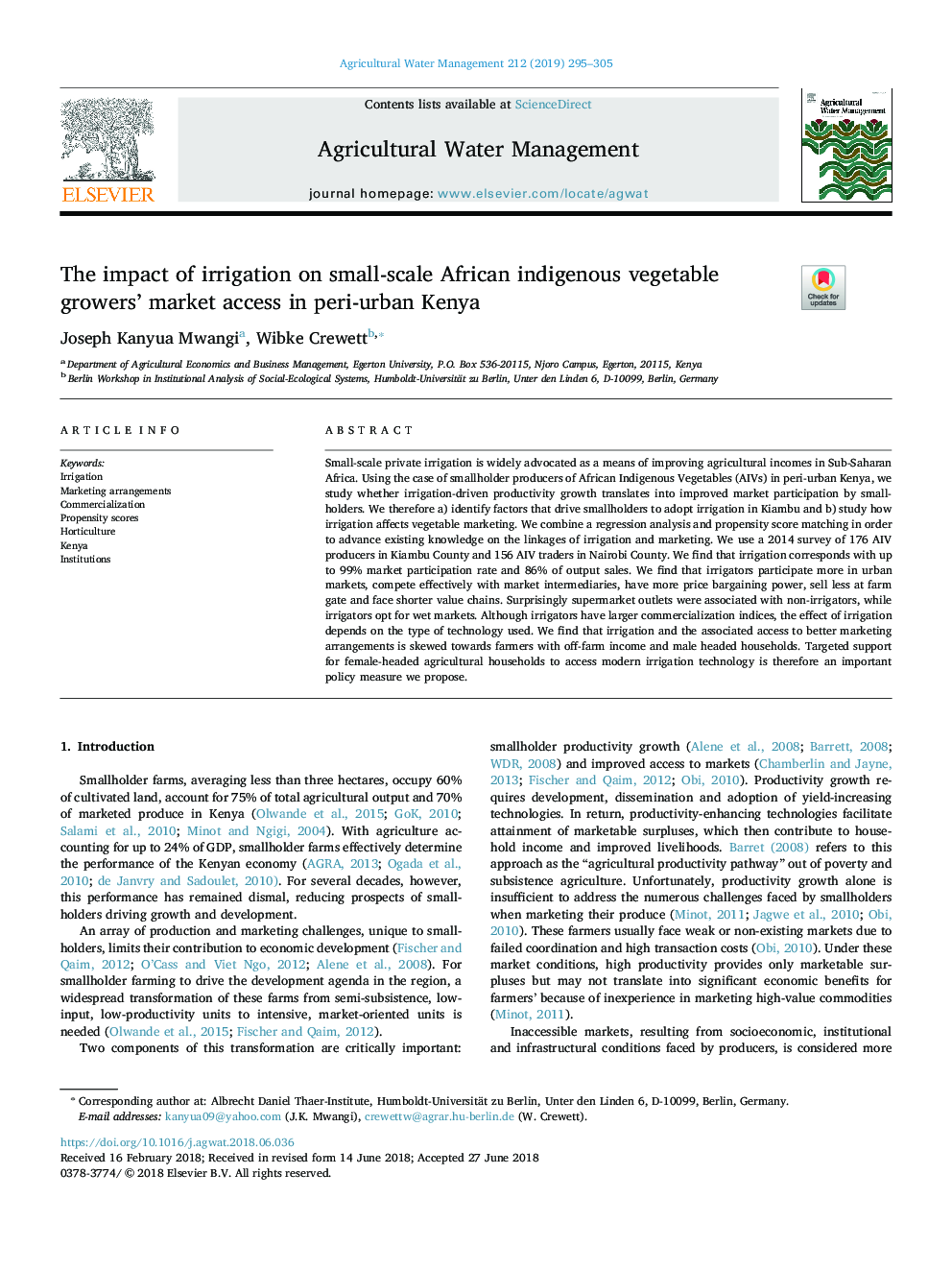| Article ID | Journal | Published Year | Pages | File Type |
|---|---|---|---|---|
| 10144810 | Agricultural Water Management | 2019 | 11 Pages |
Abstract
Small-scale private irrigation is widely advocated as a means of improving agricultural incomes in Sub-Saharan Africa. Using the case of smallholder producers of African Indigenous Vegetables (AIVs) in peri-urban Kenya, we study whether irrigation-driven productivity growth translates into improved market participation by smallholders. We therefore a) identify factors that drive smallholders to adopt irrigation in Kiambu and b) study how irrigation affects vegetable marketing. We combine a regression analysis and propensity score matching in order to advance existing knowledge on the linkages of irrigation and marketing. We use a 2014 survey of 176 AIV producers in Kiambu County and 156 AIV traders in Nairobi County. We find that irrigation corresponds with up to 99% market participation rate and 86% of output sales. We find that irrigators participate more in urban markets, compete effectively with market intermediaries, have more price bargaining power, sell less at farm gate and face shorter value chains. Surprisingly supermarket outlets were associated with non-irrigators, while irrigators opt for wet markets. Although irrigators have larger commercialization indices, the effect of irrigation depends on the type of technology used. We find that irrigation and the associated access to better marketing arrangements is skewed towards farmers with off-farm income and male headed households. Targeted support for female-headed agricultural households to access modern irrigation technology is therefore an important policy measure we propose.
Related Topics
Life Sciences
Agricultural and Biological Sciences
Agronomy and Crop Science
Authors
Joseph Kanyua Mwangi, Wibke Crewett,
